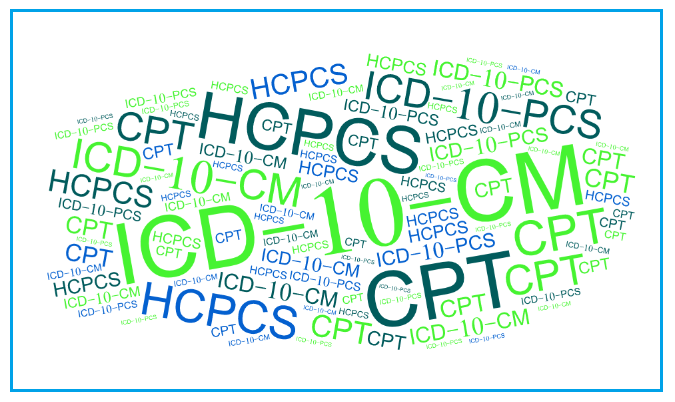
Coding Accuracy Fundamentals The Best Proper Medical Billing
In today’s rapidly shifting healthcare landscape, the accuracy of medical billing and coding has never been more critical. This intricate process affects not just the financial health of medical practices but also patient outcomes and satisfaction. Proper medical billing and coding ensure that healthcare providers are reimbursed accurately and efficiently for their services, minimizing denials and streamlining the revenue cycle. Let’s dive into the essential role that precise medical coding and billing play in the success of healthcare operations.
Importance of Accurate Medical Coding
Accurate medical codes are vital for a smooth-running revenue cycle management system within any healthcare practice. Proper coding leads directly to the correct billing of services, which ensures that healthcare providers are reimbursed accurately and promptly for the treatments they provide. Accurate coding helps minimize claim denials and increases the overall efficiency of billing operations. Moreover, it affects compliance and reporting, as accurate data is critical for quality assurance and assessment.
Effects of Inaccurate Coding on Revenue
Inaccurate coding, on the other hand, can significantly disrupt the financial cycle of a healthcare facility. Consequences include delayed payments, denied claims, and re-submission needs, increasing administrative tasks at the expense of patient care. Importantly, frequent code errors can also trigger audits by insurers, possibly leading to hefty fines and affecting the credibility of the healthcare provider.
Minimizing Denials Through Proper Billing Practices
Common Causes of Denials
Claim denials in medical billing can be caused by various factors including:
– Insufficient or incorrect patient information
– Lack of prior authorization or referral
– Service not covered by the insurer
– Coding errors
– Duplicate claims
These denials not only delay payments but also increase the workload of the billing staff, who must spend additional time investigating and rectifying these issues.
Strategies to Reduce Denials
To effectively reduce the number of denials, healthcare practices should focus on:
– Ensuring accurate and complete patient documentation
– Verifying insurance benefits and coverage for planned procedures in advance
– Training billing staff on the latest coding standards and practices
– Regular audits to catch and correct recurring errors in the billing process
Implementing these strategies can markedly improve the efficiency of medical billing processes and reduce financial losses due to denials.
Importance of Compliance in Billing
Compliance is a cornerstone in medical billing, ensuring that all processes adhere to applicable laws and regulations, including those related to privacy and health information security. Maintaining compliance not only minimizes legal risks but also reinforces the trust between patients and healthcare providers. Effective compliance programs monitor the ongoing adherence to coding guidelines and payer policies, further contributing to the reduction of denials and the accuracy of claims submissions. This alignment of compliance and billing accuracy effectively enhances the financial health of medical practices, fostering a more stable revenue stream.
Staying Up-to-Date on Industry Coding Standards
Maintaining accuracy in medical billing and codes are closely tied to staying current with industry standards. These standards change frequently, reflecting new medical procedures, technologies, and government and payer regulations. Keeping up-to-date is crucial not only for compliance but also for ensuring the financial health of healthcare practices.
Benefits of Compliance
Adherence to the latest coding standards has numerous benefits:
– Reduction in Claims Denials: Accurate coding minimizes the chance of claims being rejected due to outdated or incorrect codes.
– Enhanced Reimbursement: Proper codes ensures that healthcare providers are reimbursed at the highest possible rates for the services they provide.
– Avoidance of Penalties: Compliance prevents costly penalties associated with coding errors, which can also lead to audits by insurers or government bodies.
– Improved Patient Satisfaction: Accurate billing directly impacts patient satisfaction by reducing billing errors and providing transparency.
Resources for Keeping Current
Professionals in the medical billing and coding fields have several resources at their disposal to stay informed:
– Continuing Education Courses: Many professional organizations offer courses that provide updates on medical code standards and changes in regulations.
– Industry Publications and Newsletters: Subscribing to relevant publications can help keep you informed about industry updates and best practices.
– Professional Associations: Organizations such as the American Academy of Professional Coders (AAPC) and the American Health Information Management Association (AHIMA) offer resources and networking opportunities that promote ongoing education and compliance.
– Online Forums and Communities: Engaging with peers through online communities can provide real-time updates and practical advice on handling specific coding issues.
By using these resources, medical billing and code professionals can ensure they remain compliant and efficient, thereby supporting the overall success of the healthcare facilities they represent.
Coding Conclusion
Effective medical billing and coding are fundamental to the success and sustainability of healthcare practices. Ensuring coding accuracy not only maximizes revenue through timely reimbursements but also minimizes claim denials and the costly need for resubmissions. Implementing robust revenue cycle management strategies facilitates smoother operational workflows and enhances patient satisfaction by minimizing billing errors. It is crucial, therefore, for healthcare providers to invest in skilled medical code professionals and continuous training to keep abreast of the latest in coding standards and regulatory changes. Having accurate and efficient medical billing and code processes are indispensable elements that significantly impact the financial health of healthcare organizations.
